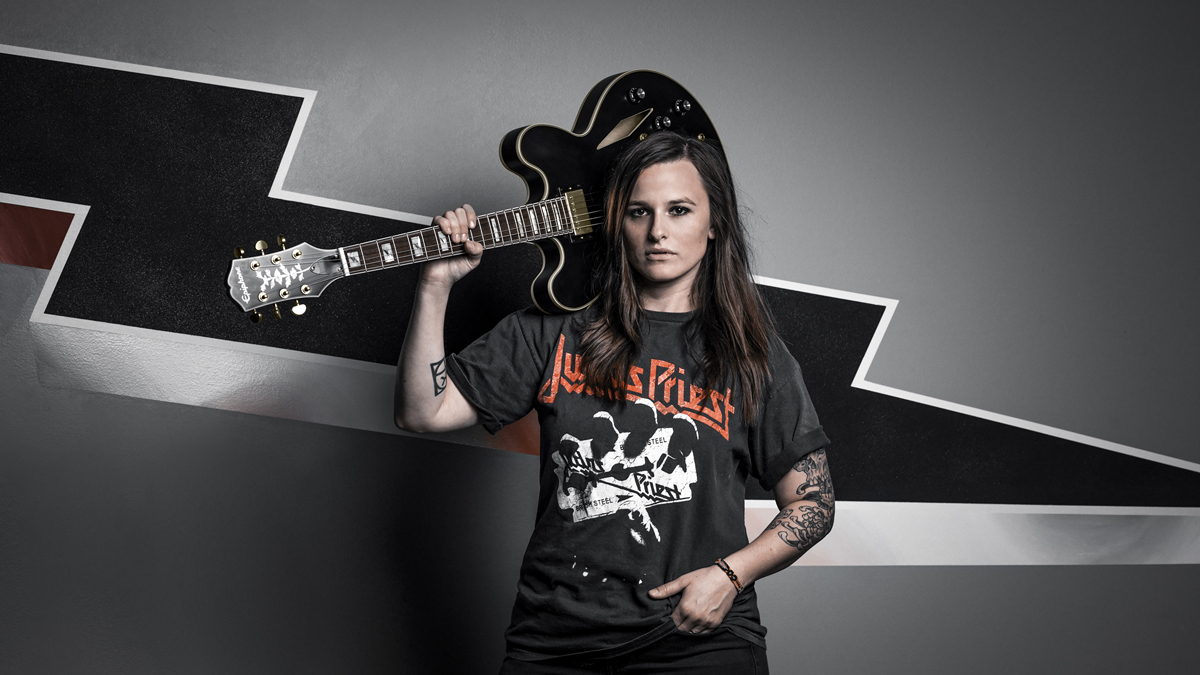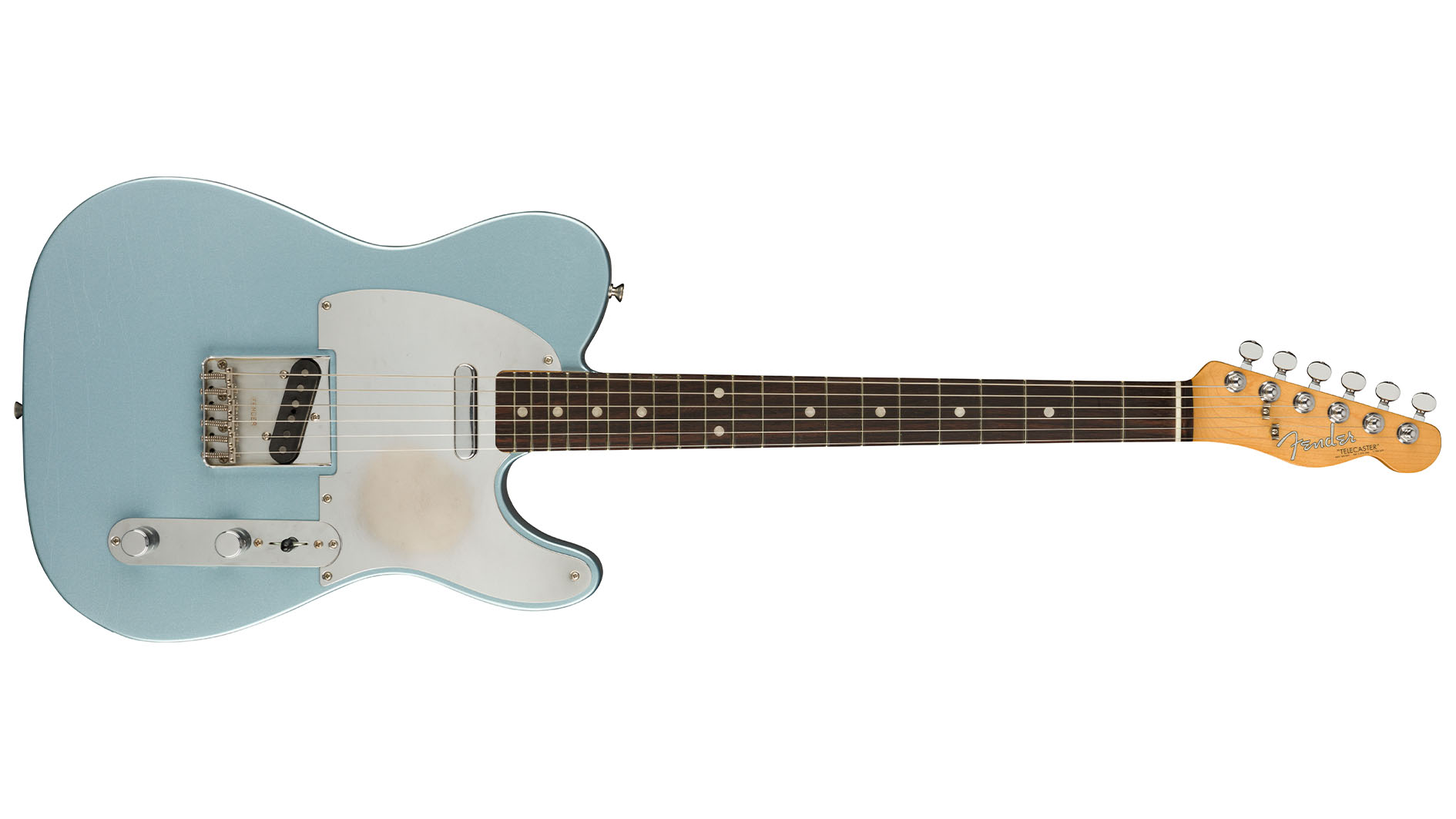
Online gear retailer Reverb has revealed that the supply of signature guitars of female and non-binary artists is insufficient to keep up with high levels of consumer demand.
The data was collected in response to a recent study conducted by Find My Guitar, which concluded that fewer than 6 per cent of non-limited edition signature electric guitars from the top 21 guitar companies belonged to artists who identified as female or non-binary.
In that initial study, it was highlighted that of the 226 signature models from today’s biggest brands, only 13 were made in collaboration with such artists.
Reverb sheds further light on the topic. Its sales data show that these signature models have a 30 day sell-through rate that is 14 per cent higher than any other signature listing that is currently on the site. Simply put, larger quantities of these signature guitars as a percentage of their overall inventory are being sold.
When viewed alongside the fact that female and non-binary signature guitars only make up one per cent of published listings on the site’s electric guitar section, Reverb concluded that the stats show how supply for such models simply can’t keep up with demand.
“Reverb found that similar to Find My Guitar’s research, signature models of female and non-binary guitarists account for 5.5 per cent of searches in the signature model electric guitar market,” it explained in a statement.
“Despite this, the listings for signature models of female and non-binary guitarists have a 14 per cent higher 30 day sell-through rate compared to other signature listings,” Reverb continued. “This means that the demand for signature models of female and non-binary guitarists like H.E.R.'s Signature Stratocaster or St Vincent's Ernie Ball Music Man outpaces the inventory available for them.”
Get The Pick Newsletter
All the latest guitar news, interviews, lessons, reviews, deals and more, direct to your inbox!

Reverb noted that the best-selling signatures on its platform were Nita Strauss' Ibanez JIVA10, Emily Wolfe's Epiphone Sheraton Stealth, St. Vincent's Ernie Ball Music Man, H.E.R.'s Fender Strat and Lzzy Hale's Gibson Explorer.
We can’t say we’re too surprised by the outcome. H.E.R.’s signature Fender Stratocaster is, after all, one of the brand’s best-looking six-strings to date, and is joined on the list by a number of equally alluring models, from Yvette Young’s sparkly Ibanez Talman to Wolfe’s stealthy Sheraton.
“It seems like people want these items,” Reverb continued, “but there’s not enough inventory to satisfy that demand – pointing to a big opportunity for more brands to partner with female and non-binary artists in the future.”
Indeed, this demand is already being felt by the biggest names in the industry. As revealed in the July issue of Guitar World, Lari Basilio's LB1 is already one of Ibanez's best-selling signature models alongside Steve Vai and Joe Satriani's – an impressive feat, given the Brazilian artist only recently broke through to a wider international audience in the last few years.
Back in 2019, Fender recognized the need for greater representation in the guitar market by announcing it was set to introduce more signature guitars for female artists in 2020 than its entire history.
This sentiment was shared by Find My Guitar at the time of their original study, with the dynamic database shedding light on how the signature market heavily favors male artists.

Find My Guitar’s study explored the signature guitar ranks of the 21 biggest brands in the market, and discovered Fender offered three female and non-binary signature models – Chrissie Hynde’s Telecaster, H.E.R.’s Stratocaster and Tash Sultana’s HSS Strat – in comparison to 28 models for male guitar players.
Similarly, out of the 26 signature guitars Ibanez offers, three of them are for female artists: Lari Basilio, Yvette Young and Nita Strauss.
There were exceptions to the rule that arose as a result of the Find My Guitar’s methodology, which did not count limited edition models. While PRS was labeled as having no female signature guitars to its name, the Maryland company did recently partner with Orianthi for a limited-edition Private Stock model.
The supply issues Reverb references, though, is not entirely exclusive to this area of the signature guitar market, given the general supply chain issues of recent times that have contributed to an overall six-string shortage.
Having been triggered and exacerbated by Covid, such wider issues are sure to play a part in the current inability of consumers to get their hands on certain models. As far back as March 2021, the falling levels of guitar stocks were noticeable.
The story hasn’t changed much since then. Earlier this year, Fender CEO Andy Mooney said he wasn’t optimistic that guitar and amp supply chain struggles will improve any time soon.
“I think eventually it’s going to get better,” he hypothesized. “I think the question is when. We’re not optimistic at this point it’s going to get significantly better for at least two, maybe three, quarters.”
In response to Find My Guitar’s findings, we compiled a list of 10 signature guitars we want to see that would, firstly, be awesome, and secondly help the market reflect the demographics of the people who play the instrument.

Matt is the GuitarWorld.com News Editor. He has a Masters in the guitar, a degree in history, and has spent the last 16 years playing everything from blues and jazz to indie and pop. When he’s not combining his passion for writing and music during his day job, Matt records for a number of UK-based bands and songwriters as a session musician.
“For years, the only 12-string acoustics I got my hands on, the necks always pulled off after a bit. I earned a lot of money replacing them!” Why one of the UK’s most prolific luthiers is a bolt-on acoustic die-hard
“It holds its own purely as a playable guitar. It’s really cool for the traveling musician – you can bring it on a flight and it fits beneath the seat”: Why Steve Stevens put his name to a foldable guitar









